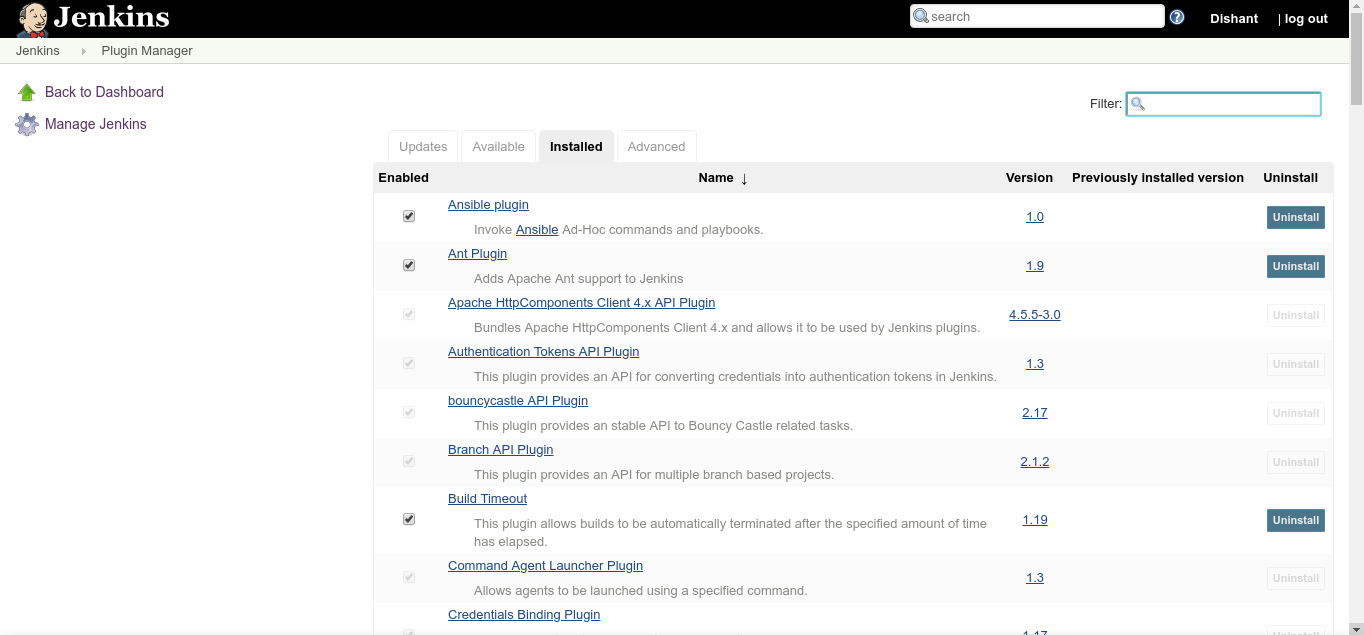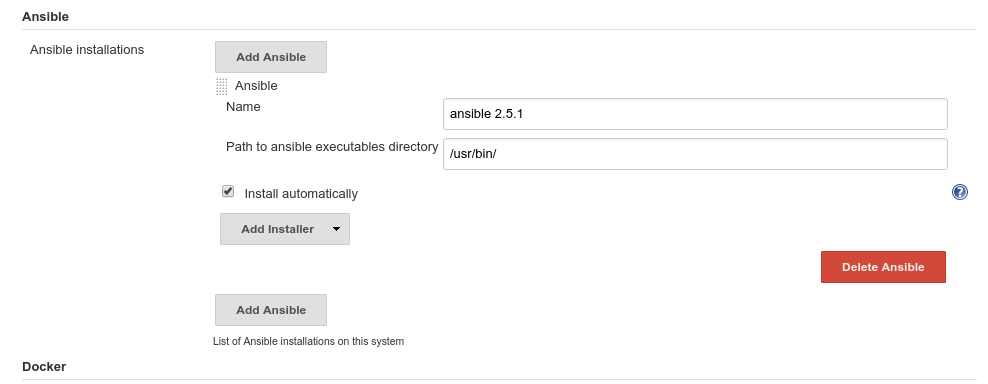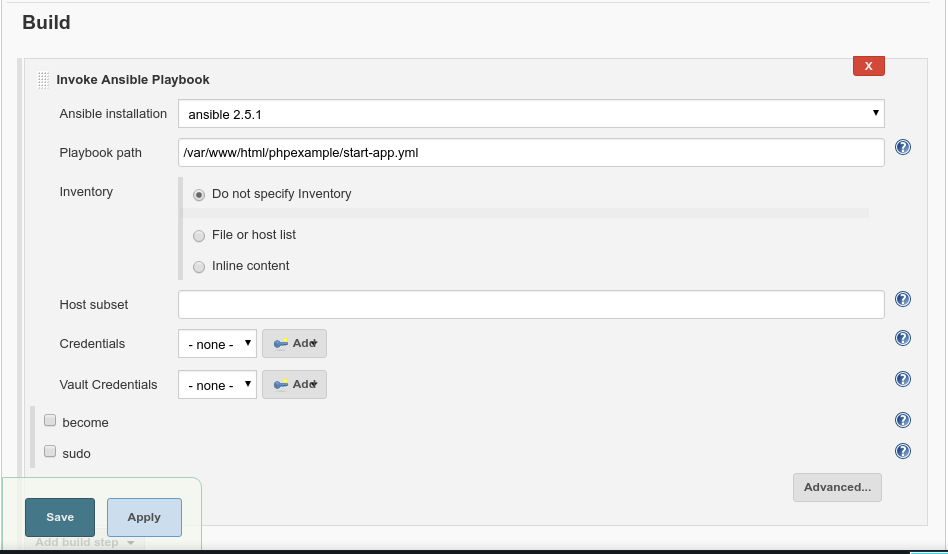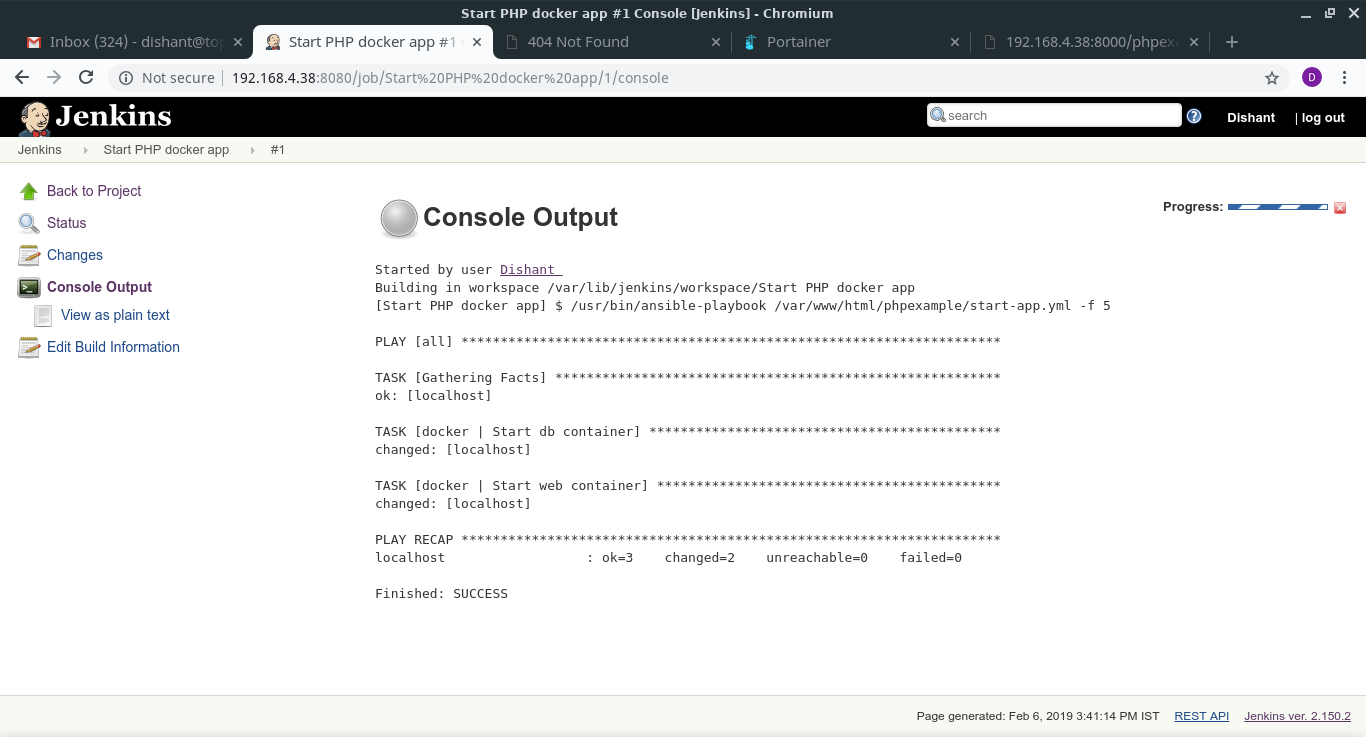PHP-Example for DevOps Practical
This is a simple PHP Application Connecting to MySQL
- It connects to a MySQL server
- Creates a Database
- Creates a Table
- Inserts Data into The Table
- Get Data from the Table
Link to the Docker Image on Docker Hub
Run the download the docker-compose.yml and run it by executing following commands
docker-compose up -d
Here is the sample Compose File, you may edit the port mapping if it conflicts with your current MySQL and Http Port
version: '3.1'
services:
db:
image: mariadb
command: --default-authentication-plugin=mysql_native_password
restart: always
environment:
MYSQL_ROOT_PASSWORD: rootuser
ports:
- 3306:3306
- 33060:33060
php:
image: drpdishant/firstapp
restart: always
ports:
- 8000:80
Open the browser and go to http://localhost:8000/phpexample Output will be similar to one given below for the first time:
Connected successfully using MySQLi Object Oriented
Database created successfully using Object Oriented Method
Table TaskList Created SuccessFully
Inserted Data SuccessFully
Task Name | Task Description | Time Stamp
Insert Data | Insert Data into MySQL DB using PHP | 2019-02-04 18:13:43
Make sure you don't have any service running on On refresh it will be similar to:
Connected successfully using MySQLi Object Oriented
Error creating database: Can't create database 'db_oo'; database exists
Error Creating Table: Table 'TaskList' already exists
Inserted Data SuccessFully
Task Name | Task Description | Time Stamp
Insert Data | Insert Data into MySQL DB using PHP | 2019-02-04 18:13:43
Insert Data | Insert Data into MySQL DB using PHP | 2019-02-04 18:14:50
To Reset the database: Open http://localhost:8000/phpexample/reset Delete the database created and start again
Download the ansible_playbook.yml file, and run it using
ansible-playbook ansible_playbook.yml
Its assumed that you have configured required hosts in the /etc/ansible/hosts
The current playbook used "hosts: all"paramater, you may change it as required to refer to a specific group of hosts.
First Installed and Configured Jenkins on the system.
Installed Ansible Plugin via Jenkins Plugin Manager
Configured Ansible Executable in Global Tool Configuration
Created Build Job to run ansible playbook and provided path to the playbook file.
Executed Build Job



